Programa
| Hour | Monday | Tuesday | Wednesday | Thursday |
| 9:00-10:00 | F. Gonçalves | M. Espinoza | F. Gonçalves | M. Espinoza |
| Coffee Break | ||||
| 10:30-11:30 | A. Dobner | F. Gonçalves | M. Espinoza | Posters |
| 11:30-12:30 | J. Bober | C. González-Riquelme | E. Carneiro | L. Lomelí |
| Lunch | ||||
| 2:30-3:30 | J. Van Order | O. Klurman | H. Van Den Bosch | Libre |
| Coffee Break | ||||
| 4:00-5:00 | A. Chirre | J. Van Diejen | N. Valenzuela | Libre |
| 7:30 | Event Dinner | |||
Cursillos
Milton Espinoza – Universidad de La Serena
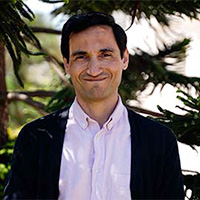 Special values of generalized Dirichlet L-functions
Special values of generalized Dirichlet L-functions
This course aims to introduce avatars of Dirichlet’s L functions in higher dimensions, in addition to describing a method to explicitly calculate their special values in non-positive integers (and also positive when the respective functional equation allows it). A delicate interaction of ideas of an algebraic, analytical, geometric and topological nature is necessary to address the multiplicity of dimensions. The epiphany took place in the late 1970’s and we owe it to the Japanese mathematician Takuro Shintani, who finally discovered how to generalize the first Riemann demonstration of the analytical continuation of the zeta function to certain Dirichlet series of several variables. The main results that we will use from number theory will be presented throughout the course.
Felipe Gonçalves – IMPA / University of Texas at Austin
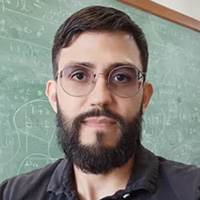 Montgomery's Pair-Correlation Conjecture
Montgomery's Pair-Correlation Conjecture
In this series of lectures we will try to provide, as much as possible, all the necessary background to understand Montgomery's Pair-Correlation Conjecture about the zeros of the zeta-function and its relations of random matrix models.
In the end, we will try to present recent advancements in this topic related to certain optimization problems.
Expositores
Jonathan Bober – University of Bristol
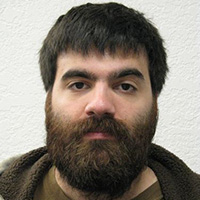 Mixed character sums and extremal properties of Littlewood polynomials
Mixed character sums and extremal properties of Littlewood polynomials
I will discuss questions and results about the distribution of sums of Dirichlet characters times the exponential function. Studying these questions for quadratic characters leads to new record constructions of polynomials with +/- 1 coefficients and large Mahler measure. This is joint work with Oleksiy Klurman and Besfort Shala.
Emanuel Carneiro – The Abdus Salam International Centre for Theoretical Physics
 Fractional derivatives and the equidistribution of Galois orbits
Fractional derivatives and the equidistribution of Galois orbits
In this talk I will discuss effective versions of the celebrated Bilu's equidistribution theorem for Galois orbits of sequences of points of small height, identifying the qualitative dependence of the convergence in terms of the regularity of the test functions considered. I will present a general Fourier analysis framework that extends previous results in the literature. This is based in a joint work with Mithun Das (ICTP).
Andrés Chirre – Pontificia Universidad Católica del Perú
 Bounds for the partial sums of the Möbius function and extremal functions
Bounds for the partial sums of the Möbius function and extremal functions
One of my favorite quotations in Mathematics is from Titchmarsh, who remarked: "The finer theory of the partial sums of the Möbius function is extremely obscure, and the results are not nearly so precise as the corresponding ones in the prime number problem." In this talk, we will show how certain extremal functions in Fourier analysis can be employed to obtain good bounds for the partial sums of the Möbius function.
Alexander Dobner – University of Michigan
 Alternative random models of the zeros of the Riemann zeta function
Alternative random models of the zeros of the Riemann zeta function
There is a great deal of numerical evidence suggesting that the zeros of the Riemann zeta function "look like" the eigenvalues of a random unitary matrix. This empirical connection between number theory and random matrix theory has enabled number theorists to make precise conjectures about the Riemann zeta function. However, there is still a large gap between what has been conjectured and what is known rigorously. To test the limitations of our current knowledge, it is interesting to ask whether there are other random models of the zeta zeros that are consistent with what is known rigorously. One such model called ACUE was recently proposed by Tao and independently by Lagarias and Rodgers. I will discuss this strange ’alternative’ model of the zeta zeros, and give some new results about it.
Cristian González-Riquelme – Centro de Recerca Matemática
 Maximizers of extension inequalities for quadratic surfaces in finite fields
Maximizers of extension inequalities for quadratic surfaces in finite fields
Strichartz estimates are important inequalities in PDEs. There is a correspondence between them and Fourier extension inequalities for quadratic manifolds. On the other hand, since the work of Mockenhaupt and Tao, much effort has been made in order to establish the finite field analogues for these Fourier extension inequalities. In this case, the arithmetic structure of these spaces plays a major role. In this talk, we present optimal versions of these inequalities in this setup. This is based on joint works with Diogo Oliveira e Silva and Tolibjon Ismoilov.
Oleksiy Klurman – University of Bristol
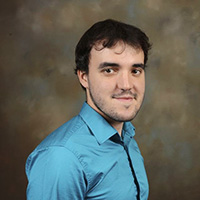 Counting sign changes
Counting sign changes
The aim of this talk is to discuss a simple way producing sign changes of weighted multiplicative sums. We illustrate its applicability by studying the number of sign changes of partial sums of "typical" real Dirichlet characters and random multiplicative functions, uncovering some surprising phenomena.
Nicolás Valenzuela – Universidad de Chile
 An Introduction to Physics Informed Neural Networks and Their Application to Nonlinear Dispersive Equations
An Introduction to Physics Informed Neural Networks and Their Application to Nonlinear Dispersive Equations
In recent years, Deep Learning (DL) techniques have emerged as powerful tools for approximating solutions to certain partial differential equations (PDEs). Most applications to date focus on bounded domains, due the capability of traditional numerical methods. In this talk, we introduce a novel approach that combines Physics Informed Neural Networks (PINNs) -a recently developed DL framework- with stability theory to approximate solutions of nonlinear dispersive equations posed on unbounded domains. We specifically explore the effectiveness of PINNs in addressing the nonlinear Schrödinger and generalized Korteweg-de Vries (gKdV) equations, highlighting how this method can be employed in the absence of boundary conditions.
Hanne Van Den Bosch – Universidad de Chile
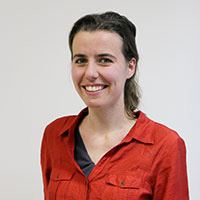 Spectral flow methods for edge states at soft walls
Spectral flow methods for edge states at soft walls
The goal of this work is to understand the appearance of edge states in models from solid state physics. I will give a general introduction to the concept of spectral flow and its properties that allow us to estimate when these edge modes appear.
The talk is based on joint work with David Gontier.
Jan Felipe van Diejen – Universidad de Talca
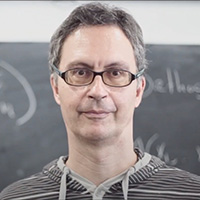 Elementary hypergeometric functions, the dynamics of zeros, and KdV solitons
Elementary hypergeometric functions, the dynamics of zeros, and KdV solitons
It is well-known that the one-dimensional stationary Schrödinger equation with a Pöschl-Teller potential can be solved exactly by means of Gauss’ hypergeometric series. For special values of the coupling constants such that the potential becomes reflectioness, this hypergeometric series factorizes essentially in terms of a plane wave and a polynomial in the spectral parameter. We point out that the positions of the zeros of this polynomial satisfy an integrable Hamiltonian system of differential equations in the spatial variable. Integration of the pertinent Hamiltonian dynamics gives rise to detailed insight into the zeros of the reflectionless hypergeometric series. Moreover, the Pöschl-Teller potential can be reconstructed from the positions of the zeros in question. By acting with a time-flow generated by a second integral of the Hamiltonian system for the zeros, the KdV solitons are recovered.
Jeanine Van Order – Pontifícia Universidade Católica do Rio de Janeiro
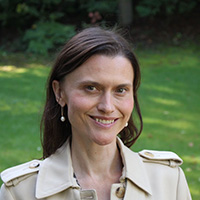 New approaches to the shifted convolution problem for GL(n)
New approaches to the shifted convolution problem for GL(n)
I will survey the shifted convolution problem for GL(n) L-function coefficients, then describe an approach showing the analytic continuation of the underlying Dirichlet series using variation of vectors in Kirillov models.
This is based on work in progress with Dorian Goldfeld.
Luis Lomelí – Pontificia Universidad Católica de Valparaíso
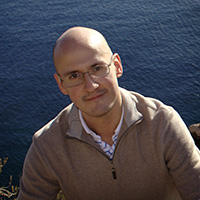 Automorphic L-functions and Ramanujan Conjecture
Automorphic L-functions and Ramanujan Conjecture
The Langlands Program ecompasses general reciprocity laws and the principle of functoriality that interconnect several areas of mathematics, including Number Theory, Representation Theory and Geometry. Our approach is via L-functions associated to automorphic representations of a group of Lie type over a global field. We will discuss the axioms of a theory of L-functions and a holomorphy property for cuspidal representations. We will then approach Langlands functoriality and the Ramanujan Conjecture, having in mind the example of groups of classical kind. In particular, the Ramanujan Conjecture can be reduced to the general linear group via functoriality. Note that in the particular case of a global function field, thanks to the work of Laurent Lafforgue, this is a known result for GL(n). We will say a few words about the general progress around these important problems of current mathematical research.